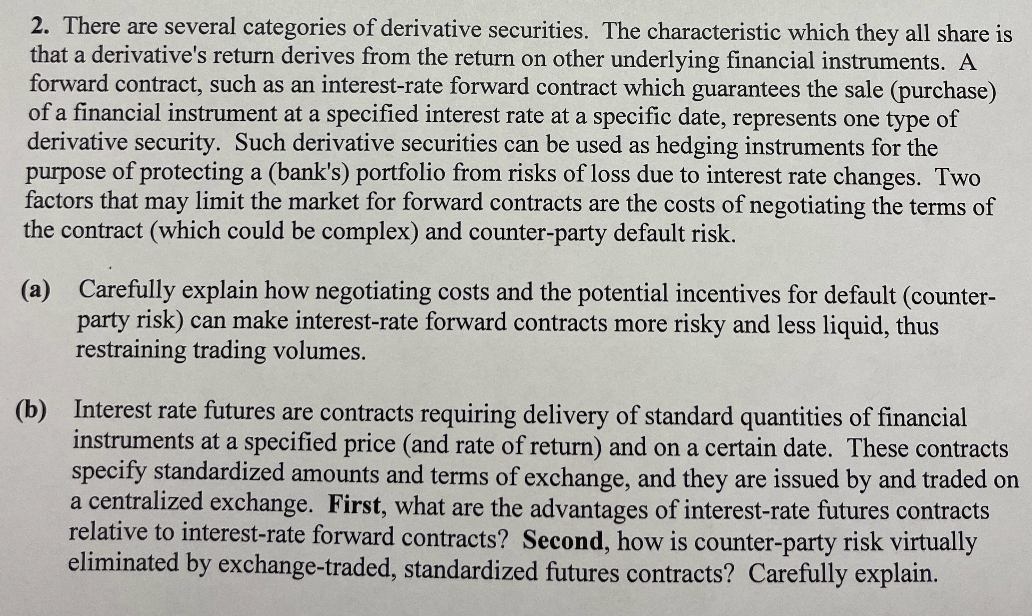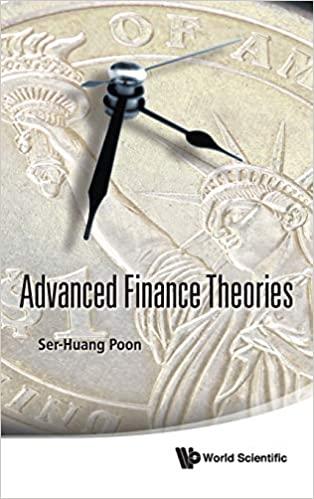
2. There are several categories of derivative securities. The characteristic which they all share is that a derivative's return derives from the return on other underlying financial instruments. A forward contract, such as an interest-rate forward contract which guarantees the sale (purchase) of a financial instrument at a specified interest rate at a specific date, represents one type of derivative security. Such derivative securities can be used as hedging instruments for the purpose of protecting a (bank's) portfolio from risks of loss due to interest rate changes. Two factors that may limit the market for forward contracts are the costs of negotiating the terms of the contract (which could be complex) and counter-party default risk. (a) Carefully explain how negotiating costs and the potential incentives for default (counter- party risk) can make interest-rate forward contracts more risky and less liquid, thus restraining trading volumes. (b) Interest rate futures are contracts requiring delivery of standard quantities of financial instruments at a specified price (and rate of return) and on a certain date. These contracts specify standardized amounts and terms of exchange, and they are issued by and traded on a centralized exchange. First, what are the advantages of interest-rate futures contracts relative to interest-rate forward contracts? Second, how is counter-party risk virtually eliminated by exchange-traded, standardized futures contracts? Carefully explain. 2. There are several categories of derivative securities. The characteristic which they all share is that a derivative's return derives from the return on other underlying financial instruments. A forward contract, such as an interest-rate forward contract which guarantees the sale (purchase) of a financial instrument at a specified interest rate at a specific date, represents one type of derivative security. Such derivative securities can be used as hedging instruments for the purpose of protecting a (bank's) portfolio from risks of loss due to interest rate changes. Two factors that may limit the market for forward contracts are the costs of negotiating the terms of the contract (which could be complex) and counter-party default risk. (a) Carefully explain how negotiating costs and the potential incentives for default (counter- party risk) can make interest-rate forward contracts more risky and less liquid, thus restraining trading volumes. (b) Interest rate futures are contracts requiring delivery of standard quantities of financial instruments at a specified price (and rate of return) and on a certain date. These contracts specify standardized amounts and terms of exchange, and they are issued by and traded on a centralized exchange. First, what are the advantages of interest-rate futures contracts relative to interest-rate forward contracts? Second, how is counter-party risk virtually eliminated by exchange-traded, standardized futures contracts? Carefully explain







